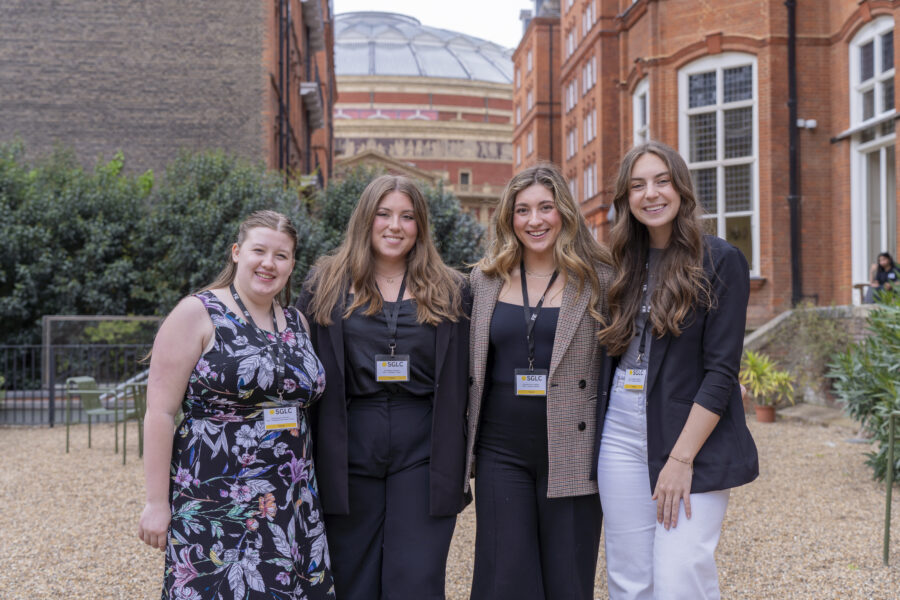
561
Raise your hand if you have complete confidence in today’s leaders.
Now, raise your hand if you are hopeful that the next generation can do a better job.
As educators, we can do more than just hope. We can work with our students to help them become the leaders that this planet is going to need—but what kind of leader is that?
Our answer must account for the fact that we are living in a period in which the pace of change is not only fast, but also speeding up all the time. Leadership training today has to focus less on understanding the world as it is, and more on developing the vision and skills needed to navigate an uncertain future. At the London Global Education Center, students are taught to develop a socially conscious lens on the world and build up the skills that make for great leadership regardless of whether they are taking a course in management, psychology or art history. Skills such as critical thinking, intercultural competency and communication are baked into everything we teach.
But learning about leadership doesn’t end in the classroom. We in study abroad know that sometimes learning only really ‘clicks’ for a student through the intensity and immersion of experiential learning. I had a front row seat to one such moment back in April when four AIFS Abroad students took to the stage to speak at the Student Global Leadership Conference in London. Hosted by FIE in partnership with AIFS, this annual event brings together future change-makers who share a passion for ‘sustainability, diversity & inclusivity, social justice, and human rights’.
The conference is comprised of a combination of inspirational keynotes, student papers, panels, reflective exercises and opportunities to network, all with the beautiful backdrop of the beautiful Royal Geographical Society. A conference workbook provided as a gift encouraged students to be active listeners, making notes and asking questions wherever and whenever possible. The intent was to create an environment which is supportive, but also asks students to adapt to a professional environment. As many of them are not from the United Kingdom, they also needed to do this in a new cultural setting far from home.

Not to brag, but the AIFS Abroad panel was juggling one more ball than all the other speakers. Our student leaders had never been in a room together, until just one day before the conference began. Selected from AIFS Abroad programs in London, Rome, Florence and Salzburg, our speakers represented the four Global Education Centers and relied on email and video call for communications in the run up to the conference in London.
They had all responded to the conference’s “Leadership and Mental Health” theme with excellent proposals which reflected personal struggles and student advocacy work in mental health.
When selecting from all the proposals we received, what stood out for me in the four speakers chosen was that their papers were not only about leadership, they were also a demonstration of how to lead. We heard from:
- A founder of an online community space for queer young people living in rural areas
- A passionate advocate for young people impacted by trauma in our schooling system
- An anxiety sufferer whose triumphs over her own condition demonstrated how to cultivate resilience
- A dyslexic student who showed us exactly why we’ll be seeing more (openly) neurodivergent leaders in the future
Our speakers modeled a particularly Gen-Z model of leadership founded on compassion, authenticity and determination to overcome. This really resonated with the conference as a whole, in which the role of vulnerability and the importance of self-knowledge were primary themes. We ended the conference with a story circle in which students shared amazing and varied histories of ways that they had faced their fears, from swimming with sharks to being published as a creative writer!
As we cultivate leaders for uncertainty, embracing intuitive strengths like empathy and compassion while deepening skills like resilience and self-agency, we empower students to apply learning in ways only they uniquely can. And it is our responsibility to create more opportunities like the Student Global Leadership Conference to show us not only how they may grow, but how and what we might learn from them, too.
It was an uplifting reminder that if we dare to put our students into new and challenging situations, they may not only impress us, they may also give us a glimpse of a braver future.